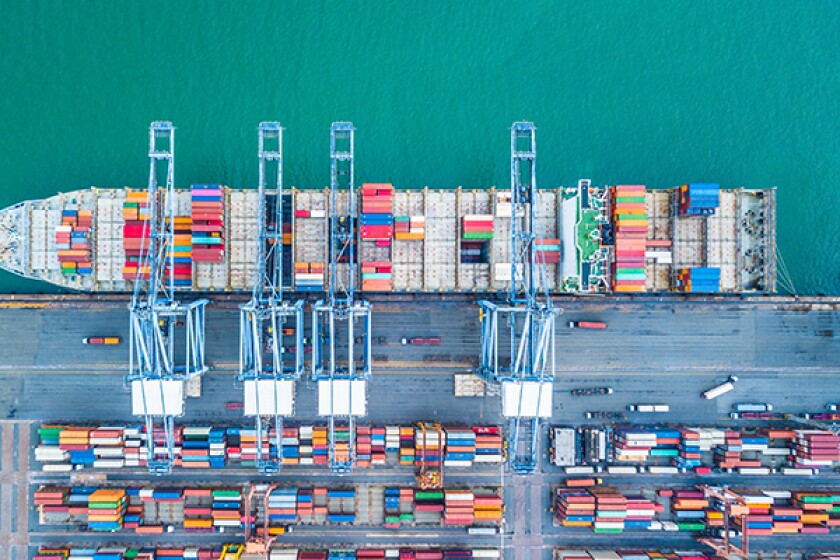The first half of 2019 has been busy in the fields of trade, customs and indirect taxes in Central America. During 2018 the countries of Costa Rica, El Salvador, Honduras, Nicaragua and Panama signed a free trade agreement with Korea, and Costa Rica ratified the treaty in March 2019. This agreement signifies a step towards free trade with Asia, and it supports regional efforts to create better economic opportunities in the commercial field. Some of the products that the region exports, such as sugar, coffee, fruits, agricultural and fish products will be exported with zero duties. Korea's imports such as vehicles, machinery and mobile phones will enjoy free trade when imported into Central America. It is an opportunity for the region but also a challenge, especially in investment, where an effort is needed to attract foreign direct investment (FDI) from Korea into Central America. It is a chance for sectors such as technology, telecommunications and innovation to be further developed by the countries using the experience of Korea.
The World Trade Organisation's Trade Facilitation Agreement is also being implemented in all of the countries in the region and it should bring important progress, something companies have already witnessed. For example, the countries have opened up the possibility of anticipated declarations with the purpose of expediting customs processes and they continue to implement measures towards trade facilitation.
It is important to remember that there is a Central American Integration System, which was established on December 13 1991, by the signing of the Protocol to the Charter of the Organisation of Central American States (ODECA) or Tegucigalpa Protocol, which amended the Charter of ODECA, signed in Panama on December 12 1962, and formally came into operation on February 1 1993. This integration process includes steps and timeframes for the complete integration of electronic systems and mutual recognition in Central America. The process aims to establish a Central American common market in all areas of integration. So far, 99% of duties are harmonised in Central America and technical requirements and sanitary permits are in the process of harmonisation.
As a part of this integration, the Unified Customs Declaration (DUCA) entered into force in May 2019 in the six countries. While the DUCA networks are still in process, it is certainly a trade facilitation measure with a harmonised (one-for-all) system applicable to all customs computerised transmissions.
Also, the Central American Invoice and Single Declaration (FYDUCA) is already in place for Guatemala and Honduras (as of last year) and it will be in force in El Salvador in the near future. The FYDUCA is an electronic invoice transmitted between users in both countries, eliminating the import/export concepts and transforming the transaction into a sale. The FYDUCA is applicable to almost 70% of trade between both countries, basically to all the products that do not need a sanitary permit and that are currently in free trade. One of the problems that users have encountered is that FYDUCA does not have the option in the system of third-country invoicing, so the authorities are in conversation with the private sector to be able to implement this option in the electronic structure.
With both developments, it is important to consider that the TIC@, SAT, DUA and other systems are no longer in place and companies should use the new DUCA. While these are positive developments aimed at trade facilitation, companies and especially customs brokers are facing challenges adapting to new electronic networks.
As for customs documentation in Central America, it is very standard that all the imports must be transmitted by a DUCA, along with a value declaration, invoice and bill of landing (BL). In cases where a trade preference is applied, then an origin certificate should also be attached to the import.
Table 1 lists free trade agreements (FTAs) signed by Central American countries, where each FTA states the form of the origin certificate that should be presented.
Table 1: free trade agreements in Central America |
||||||
Country |
Guatemala |
Honduras |
El Salvador |
Nicaragua |
Costa Rica |
Panama |
US |
✓ |
✓ |
✓ |
✓ |
✓ |
✓ |
EU |
✓ |
✓ |
✓ |
✓ |
✓ |
✓ |
Canada |
✓ |
✓ |
✓ |
|||
CARICOM |
✓ |
|||||
Chile |
✓ |
✓ |
✓ |
✓ |
✓ |
✓ |
China |
✓ |
In negotiation |
||||
Singapore |
✓ |
✓ |
||||
Colombia |
✓ |
✓ |
✓ |
✓ |
||
Mexico |
✓ |
✓ |
✓ |
✓ |
✓ |
✓ |
Panama |
✓ |
✓ |
✓ |
|||
Peru |
✓ |
✓ |
✓ |
|||
DR |
✓ |
✓ |
✓ |
✓ |
✓ |
|
Taiwan |
✓ |
✓ |
✓ |
✓ |
✓ |
|
Panama |
✓ |
✓ |
✓ |
|||
EFTA |
✓ |
✓ |
||||
CACM |
✓ |
✓ |
✓ |
✓ |
✓ |
✓ |
As for some indirect tax changes, it is important to consider that Costa Rica approved the Fiscal Plan, with the IVA entering into force in July 2019, applicable to both goods and services, along with an integral tax reform in other areas. Among those changes, exporters should be registered in a database and those providing services for exports should be registered as well to benefit from IVA exemptions. Nicaragua has applied specific taxes to some industries, including for example beverages that are imported into Nicaragua, which now have a specific tax that is calculated in a similar way to that of alcohol. Panama enacted the OECD's Guidelines applicable to its special zones.
In summary, this is a region that for its trade openness, wide range of FTAs and duty preferences represents an interesting option as a hub for exports into the US or other parts of Latin America. It still faces important challenges and authorities are working towards better connectivity, digitalisation and integration, so it is expected that more measures will come into place in these areas soon.
EY
T: +506 2208 9800
W: eycalaw.com












